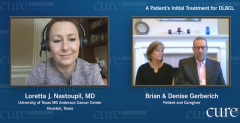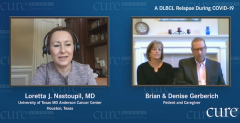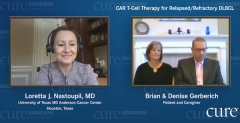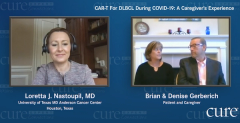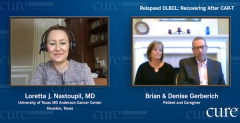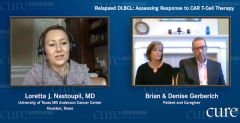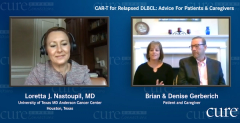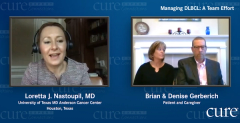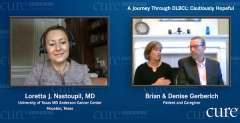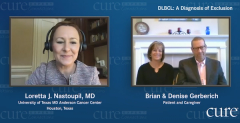
CAR-T for DLBCL During COVID-19: A Caregiver’s Experience
Episodes in this series

Loretta J. Nastoupil, MD: COVID-19 [coronavirus disease 2019] has made it hard for patients and their families because we’re so restrictive as to who can come in the building and who can spend time, though with our patients receiving CAR-T [chimeric antigen receptor-T cell therapy] we make an exception. We want a family member present, and with axi-cel [axicabtagene ciloleucel], we are administering the cells inpatient and then monitoring for these acute adverse effects and keeping the patient in the hospital until they resolve. There is quite a bit of burden, and again, Denise, I want your perspective on this. But we advise you to notify us about any development in toxicity, though we are watching closely as well.
Now there are not staff in the room 24 hours a day, but at least with a change in shift, we require patients to perform some functioning to assess for the neurotoxicity. Any time nurses or staff walk in and there’s concern about changes, again we’ll perform those objective tests to essentially guide or gauge how intense the symptoms are and sometimes intervene.
But I always feel bad for family members because I feel there is this sense that they are watching so closely they don’t want to miss anything. And then as you said, when patients start to feel bad, oftentimes they are treated differently than they normally would, and it has nothing to do with the patient, their brain is not functioning properly. I think you take the brunt of that as well.
And there’s the fear and the concern that this is a loved one, you want them to be normal, and they’re not acting normal. What was your perception of that? Am I on to something?
Denise Gerberich: Oh, you definitely hit the nail on the head. It was difficult. And because of COVID-19, we couldn’t have family members in. I think maybe there would have even been some groups that I could have participated in as far as having support inside the hospital had it been a normal time.
I definitely had family members who I reached out to and who reached out to me on phone calls, texts. That was my support system because during the times when he was very disoriented and confused and I felt like I was on my own, that support was needed and important to me to handle the difficulty of getting through the situation.
The nurses and staff, everybody was very concerned for me and asking, “Are you doing OK?” Or “How can we help?” I appreciated that care and concern. But many people would say, “Make sure you have self-care,” which is easier said than done. I think you also need that support system. Brian was going through it physically, and I think I was going through it emotionally. I needed some support, love and care from family members and friends. That was very important for me.
Transcript Edited for Clarity

